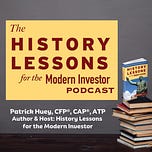On October 21 (1805), at the Battle of Trafalgar, British naval hero Admiral Horatio Nelson defeated the combined fleets of France and Spain, ensuring British naval supremacy.
The British Royal Navy, under the command of Admiral Horatio Nelson, faced off against the combined fleets of Napoleonic France and Spain, led by Admiral Pierre-Charles Villeneuve. The battle occurred off the coast of Cape Trafalgar, near Spain’s southwestern coast, and was part of Napoleon Bonaparte's larger plan to invade Britain by neutralizing its naval superiority. Admiral Nelson, aware of the numerical superiority of the enemy, devised a bold and unorthodox strategy. Instead of engaging in the traditional line-of-battle formation, he divided his fleet into two columns that would sail perpendicular to the Franco-Spanish line, intending to break through and engage the enemy in close-quarters combat. This maneuver, while risky, allowed the British ships to disrupt the enemy formation, creating chaos and preventing them from coordinating effectively. Nelson’s flagship, HMS Victory, led the charge, and despite intense fighting, the British fleet's superior discipline, tactics, and gunnery began to overwhelm the larger but less cohesive enemy. The outcome was a resounding British victory. The Franco-Spanish fleet lost 22 ships, either captured or destroyed, while the British didn’t lose a single vessel, solidifying Britain's status as the world’s foremost naval power. Tragically, Admiral Nelson was mortally wounded by a French sniper during the battle and died aboard Victory shortly after learning of his triumph. His death made him a national hero, and his legacy as one of Britain’s greatest naval commanders was sealed. The victory at Trafalgar not only safeguarded Britain from invasion but also ensured that no other European power could challenge its supremacy at sea for the rest of the Napoleonic Wars and beyond.
Here are five lessons for the modern investor that can be drawn from the Battle of Trafalgar:
1. Practice, practice, practice. Ships of Nelson’s navy were known to practice their gunnery until they could deliver at least three full broadsides to the enemy’s two. That overwhelming firepower made British naval forces the uncontested masters of the sea for several generations. Now is an excellent time for you to practice as an investor and understand how you will react in various market scenarios while things are relatively calm. How will you feel if/when the market drops anchor for a while or when it starts to sink? Judging your gut reactions now will help mitigate their effects later.
2. Run the risks, or don’t. Admiral Nelson meticulously prepared his fleet, knowing success depended on anticipating and mitigating the risks to his ships. You should consider both potential rewards and risks. I know, we talk a lot about that. But the reason is that so many investors lack that kind of superior discipline in the heat of the moment when markets are down or when becalmed and seemingly not moving much. You absolutely must start with how much risk you are prepared to take before setting sail with your investment plans.
3. Fortune favors the bold, but only when backed by expertise. Nelson’s unorthodox tactics were daring but based on deep naval knowledge. For us, bold moves can lead to high rewards, but only when grounded in research and expertise. If you don't, as they said in the British Navy, mind your Ps and Qs, you can wind up speculating instead of investing.
4. Improvise, adapt, and overcome. The fog of war often made it hard to predict enemy movements, but Nelson could adjust quickly when needed. Are you ready to adapt to market conditions when they inevitably change? Flexibility in adjusting strategies—whether reallocating assets or cutting losses when markets shift—can be crucial in volatile environments.
5. Strong leadership and confidence inspire success. Nelson's leadership inspired confidence in his crew, which was essential to the victory (the battle) and the Victory (the ship). Similarly, successful investment managers, advisors, and, hopefully, our clients must display confidence and clear decision-making. Why? Because that is what will reduce the chances of emotional, panic-driven mistakes.
These are fundamental lessons for investors and the same ones I steer my ship by. Coincidentally, my ship is also named VICTORY.
#podcast #investing #investmentdecisions #economicdecisions #LessonsFromHistory #HistoryAndFinance #InvestingInHistory #BattleAndWealth #StrategicThinking #Investing101 #FinancialHistory #InvestmentStrategies #WealthBuilding #SmartInvesting #MoneyMatters #FinanceTips #BattleOfTrafalgar #navalhistory #PodcastEpisode #PodcastLife #HistoryPodcast #FinancePodcast #NewEpisode #BritishHistory #NapoleonicWars #AdmiralNelson #MaritimeHistory





